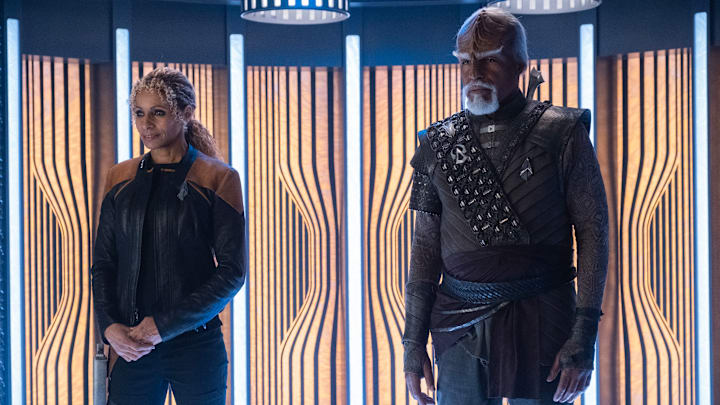One of the reasons why we're not so keen on Star Trek: Picard is because it was a show about diminishing returns. Moments that were great the first time through, but would lose the effectiveness upon rewatches. It didn't have a shelf life as, with many Marvel or even horror films, the idea of the show was about the instant reaction to one or two things per episode. It wasn't a show that created moments to relive, but imprints designed to be retweeted and shared as gifs.
So in a lot of ways, it did its job. It watered down a lot of potential into an overcooked mess that didn't make sense half the time (why only infect the youth with the Borg strain? So stupid.) The show was bad in many ways, but maybe the worst offense of all was how little justice it gave to the historical significance of the shows that came before it The shows that Picard ravaged to build its own show.
One of which, was the Enterprise-E, easily the most unnecessarily egregious moment in the series' run. A flippant joke explained away the ship's fate, with Worf proclaiming that "it wasn't his fault" like he was some silly WWE villain. Den of Geek brought this fact back up and it made me think just how silly the show was, despite the atmosphere and tone they were going for.
An entire ship, seemingly destroyed off-camera, by a series showrunner who wanted a cheap laugh over something more significant. The lack of love shown to the Enterrprise-E, buried in the depths of a bad moment of levity, further shows that this show wasn't about expanding and creating anything new, but harvesting ideas and concepts from better shows, and harvesting the marrow of nostalgia in an attempt to get people to talk about the show during its life cycle.
To a degree it worked, but it affected how so many people feel and see the show, that it was largely not worth the pain of sitting through such plot elements, like a woman keeping her son away from the father for *checks notes* no reason.
But hey, at least we got the cast back one more time, right?
